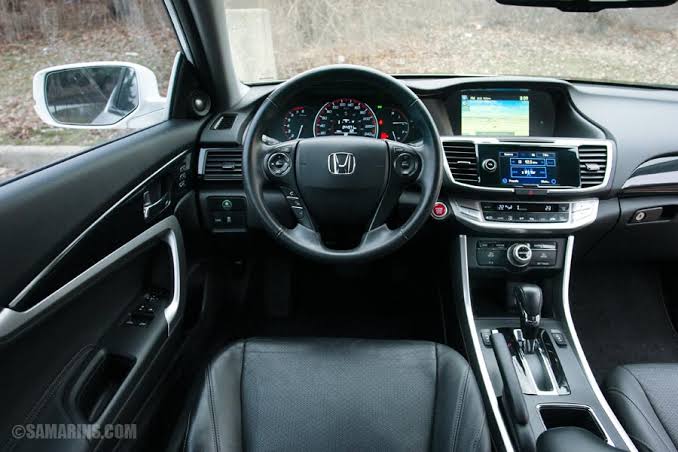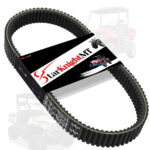The Honda Accord made its debut in 1976, and it’s been a hit straight out of the gate. Its initial charm lay in being compact but offering a surprisingly roomy interior—a bit like a clown car in a business suit. Over the years, it evolved with the times, growing in size and sophistication to fit the ever-changing automotive landscape.
Let’s discover what has made the Accord such a perennial favorite. It’s a mix of reliability, practicality, and affordability, like a reliable Swiss army knife of the car world.
Honda has managed to balance performance and economy, delivering a smooth yet spirited drive that feels just right on both highways and city streets—a feat not unlike making a rock ballad and lullaby in one tune.
As for its weaknesses, like any car, the Accord isn’t immune to a few quirks. Common issues have included transmission woes in some models and occasionally finicky electronics. But overall, it’s like a trusty old hound, rarely letting you down, which explains those sturdy resale values you can see on the market.
The quality of the metal contributes to its longevity. Honda doesn’t skimp on materials, and that durability is a significant factor in its lasting appeal. It’s like they’ve wrapped the heart of a cheetah in the skin of an armadillo—swift yet enduring.
So, with Honda service manual in hand, we’re primed to pop the hood and get our hands dirty!
Navigating Transmission Troubles
Understanding the Issue
Older Accord models, especially those from the late 1990s to early 2000s, are known for some transmission issues. Symptoms could include rough shifting, slipping gears, or a delayed response when you hit the gas. It’s like your car’s forgetting the dance steps.
Tools of the Trade
- Basic socket set
- Transmission jack or a sturdy car lift
- Torque wrench (for precision-tightening those bolts)
- Transmission fluid (make sure it’s the type recommended in your manual)
- Drain pan to catch old fluid
- Screwdrivers and maybe some pliers for good measure
Service Manual Navigation
The manual is your treasure map—dry and dense as it might seem. Start with the index or table of contents. Look up “Transmission” and find the section that covers your specific issue.
Diagrams and Steps: These usually walk you through the layout and components involved. Think of these like IKEA instructions, but for your car. Follow them in sequence—no skipping ahead!
Refer to this often. Every line, circle, and symbol plays a role—much like musicians in an orchestra.
These show how parts fit together or come apart. Imagine peeling back the layers of an onion, only less teary.
Work at a pace that feels right, and don’t hesitate to walk away for a breather if things get overwhelming. Sometimes a bit of fresh air and perspective can make all the gears click into place.
Exploring Electrical Enigmas: A Roadmap
Typical Issues
In newer Accord models, electronics can seem as inscrutable as a magician’s trick. Common issues might include problems with the infotainment system, navigation glitches, sensor warnings, or battery drain. It’s like your car decided to host a light show when all you wanted was a nice drive.
Tools You Need
- Multimeter (for testing voltage, current, and resistance)
- A good quality OBD-II scanner/reader (to help diagnose engine error codes)
- Insulated screwdriver set (safety first!)
- Flashlight (for those hard-to-see areas)
- Electrical tape and some zip ties (to tidy up any loose ends)
Dos and Don’ts
- Do: Always disconnect the car battery before working with electronics.
- Don’t: Randomly cut wires. If something’s unclear, take your time and do some research first.
- Do: Consult your Honda service manual or manufacturer’s online resources for specifics.
Troubleshooting Basics
- Check Connections: Sometimes, it’s as simple as a loose connector. Give the cables and connections a gentle poke—secure any that seem off.
- Read Error Codes: Use that OBD-II scanner to see what, if any, error codes are present. It’ll point you in the right direction like a friendly compass.
- Inspect Fuses: A lot of mysterious issues start with a blown fuse. Your manual should indicate where these are located.
If you’ve exhausted your skills and tools, or the problem persists despite your best efforts, it may be time to call in a pro. No shame in knowing when to tag in an expert, much like calling for backup in a particularly tricky crossword.
Your curiosity and willingness to explore are your biggest allies here. Electronics can be intricate but utterly rewarding to decipher. Whether it’s sorting a simple sensor issue or peering into the depths of more significant electrical miasmas, start with what feels manageable.
Common Accord Quirks
- Transmission Troubles
As we touched on, Accords from certain model years have had transmission issues. But don’t let this spook you! Regular maintenance and keeping an eye on fluid levels can go a long way.
- Brake Wear
Some Accords have been known for brake rotor issues, where they wear out faster than expected. Stay proactive by keeping them checked during routine maintenance. It’s like keeping your running shoes in tip-top shape.
- Electrical Oddities
With more tech comes more potential hiccups. Infotainment glitches or sensors acting up aren’t unheard of. Check connections and update software when needed—think of it as rebooting your smartphone.
- Suspension Squeaks
Older models may develop suspension noises over time. Regularly inspect shock absorbers for wear to keep things smooth—like making sure your favorite armchair doesn’t develop a squeak.
General Honda Wisdom
- Oil Changes & Fluid Checks: The lifeblood of your vehicle. Keep these on schedule—it’s the automotive equivalent of drinking plenty of water.
- Tire Maintenance: Rotate and balance your tires regularly to ensure even wear and prolong their life, much like rotating the cushions on your couch.
- Air Filter Replacements: Easier than you might think and crucial for good engine health. A clogged filter can be a silent performance killer.
- Battery Health: Keep terminals clean and consider getting the battery tested periodically, as batteries can sometimes appear healthy even as they near the end of their lifespan.
Insider Tips
- Embrace DIY Basics: Many small tasks, like replacing bulbs or filters, are simpler than they seem once you try them. Roll up those sleeves!
- Watch the Forums: Online communities are treasure troves of shared experiences and advice. Fellow enthusiasts often provide solutions that even service centers might miss.
- Build a Relationship with Your Mechanic: Trust, communication, and a bit of humor can turn dreaded service center visits into enlightening discussions over coffee.
Honda vehicles, including your Accord, are generally known for their longevity and ease of maintenance. With a little bit of knowledge and curiosity, they can serve as fantastic teachable platforms. Your spirit of inquiry is the perfect companion to ensure many miles of open roads ahead.





